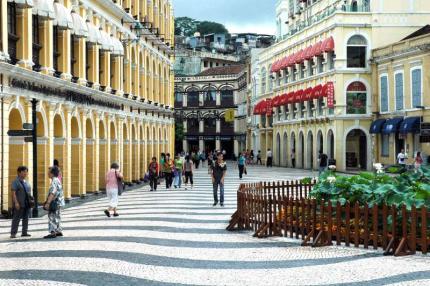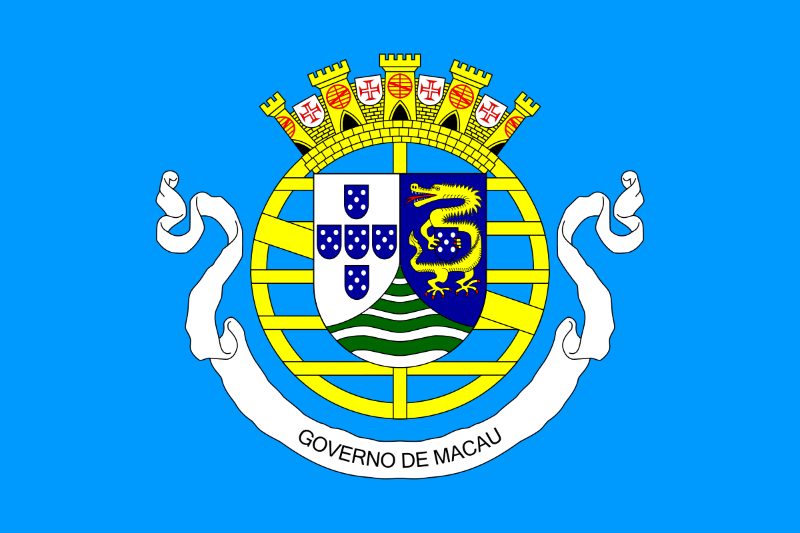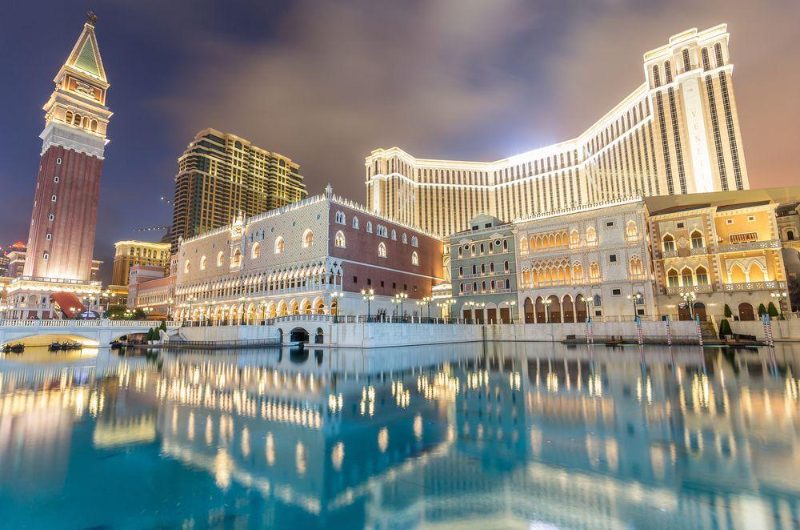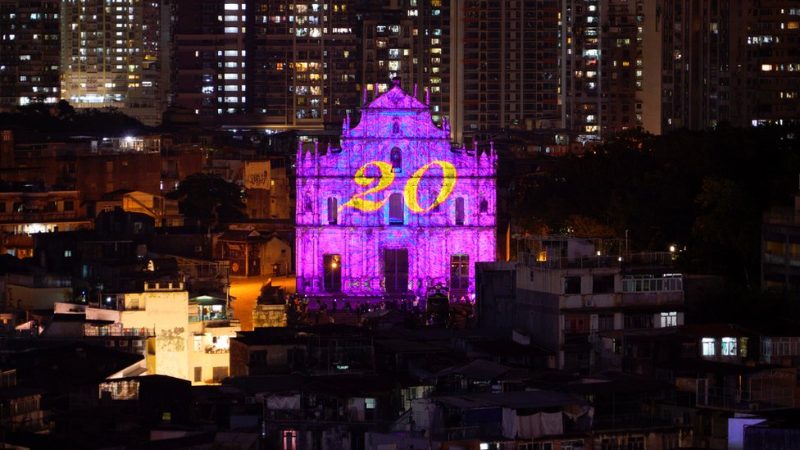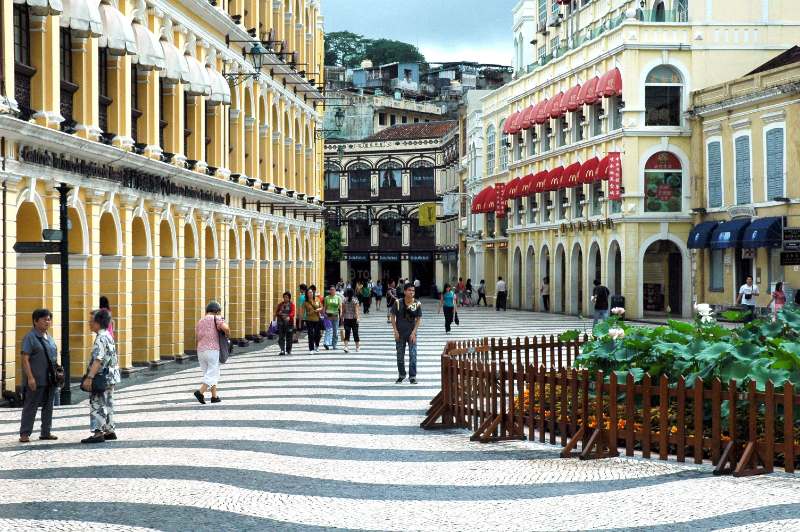Get free consultation
Fill out the form and we will contact you
Macau is one of the most unique destinations in Asia, with a rich history and distinctive culture. Once the oldest Portuguese colony in Asia, Macau today is a Special Administrative Region of China, yet it still preserves strong Portuguese cultural and architectural influences. This article will provide detailed insights into whether Macau was part of Portugal, tracing its colonial history to the present, along with residency and investment opportunities there.
Macau was established by the Portuguese in 1557, when they were granted permission to settle and trade there following an agreement with China’s Ming dynasty. For nearly 450 years, Macau served as a vital commercial bridge between Europe and Asia, as well as a gateway for the spread of Christianity into China and Japan.
Macau is the oldest Portuguese colony in Asia
The long-standing presence of the Portuguese created a unique culture in Macau, blending Eastern and Western influences in architecture, language, religion, cuisine, and traditions. This period also saw the development of many significant architectural landmarks that still exist today.
On December 20, 1999, Macau was officially handed over from Portugal to China after years of negotiation. This event marked the end of the last European colonial era in Asia.
Under the principle of “one country, two systems,” Macau became a Special Administrative Region of China with a high degree of autonomy. This policy allows Macau to maintain its capitalist economic system, its own legal framework, and many civil liberties for 50 years following the handover.
The historic centre of Macau was inscribed as a UNESCO World Cultural Heritage site in 2005, with more than 20 historic locations showcasing a distinctive East–West cultural blend. The heritage area includes:
The historic centre of Macau was recognized by UNESCO as a World Cultural Heritage site
St. Paul’s Church: The ruins of St. Paul’s, with its iconic façade, are Macau’s most famous landmark. Built in the early 17th century, only the façade remains today after a devastating fire in 1835.
Mount Fortress: Constructed between 1617 and 1626, the fortress once served as the military stronghold of Portuguese Macau.
Cathedral of Macau: Built in 1622, it has long been the venue for important religious ceremonies of the local Catholic community.
Senado Square: Once the colonial administrative center, it is lined with neoclassical Portuguese-style buildings and features signature black-and-white cobblestone pavements.
Patuá, a creole language based on Portuguese mixed with Cantonese, Malay, and other influences, was once spoken by the Macanese community (of Portuguese–Chinese descent). Although now spoken by only a few, Patuá has been recognized by UNESCO as an intangible cultural heritage in urgent need of safeguarding.
The Macanese people, a Portuguese–Chinese mixed community, developed a unique culture with a distinctive fusion cuisine combining Portuguese, Chinese, Indian, and Malay elements.
Macanese gastronomy is one of the clearest reflections of Macau’s cultural blend. Some signature dishes include:
Minchi: Minced meat stir-fried with fried potatoes, served with rice and fried egg.
Galinha à Portuguesa: Portuguese-style chicken with turmeric, chili, and olives.
Pastéis de nata: Portugal’s famous custard tart, slightly adapted in Macau.
Bacalhau: Salted cod dishes prepared in Portuguese styles.
Porco balichão tamarindo: Pork cooked with shrimp paste and tamarind.
Since 2007, Macau has surpassed Las Vegas to become the world’s largest gambling hub. Gambling revenue accounts for around 80% of the government’s total budget and contributes roughly 50% of the region’s GDP.
Macau has surpassed Las Vegas to become the world’s largest gambling capital
Famous casinos in Macau include:
The Venetian Macao: One of the largest casinos in the world, covering an area of 980,000 m².
MGM Macau: Renowned for its unique architecture and contemporary art.
Grand Lisboa: A symbol of Macau with its lotus-shaped design.
City of Dreams: An entertainment complex featuring world-class shows such as The House of Dancing Water.
Beyond casinos, Macau has also developed strongly in cultural tourism and gastronomy. Every year, the city welcomes tens of millions of visitors, mainly from mainland China, Hong Kong, and other parts of Asia.
Major cultural events in Macau include:
Macau Grand Prix: A world-famous Formula 3 racing event held every November.
Macau Light Festival: Held in December, transforming historic landmarks into illuminated works of art.
Macau International Fireworks Display Contest: An annual international fireworks competition.
Macau maintains a legal system based on Portuguese civil law, distinct from mainland China’s legal framework. This creates a more familiar environment for foreign investors, especially those from Western countries.
Macau uses the pataca (MOP) as its official currency, which is pegged to the Hong Kong dollar. The city’s economy relies heavily on the gambling industry, tourism, and real estate, with its GDP per capita ranking among the highest in the world.
Macau is a unique example of East–West cultural fusion
Macau is a unique example of East–West cultural fusion, where Portuguese heritage remains vividly present within a special administrative region of China. With its rich history, diverse culture, and thriving economy, Macau is increasingly attracting the attention of investors and those seeking residency opportunities in one of Asia’s most dynamic regions.
If you are interested in residency opportunities in Portugal or other countries through investment, please contact the expert team at Quốc Tịch Thứ Hai for detailed advice tailored to your personal needs.
Fill out the form and we will contact you
